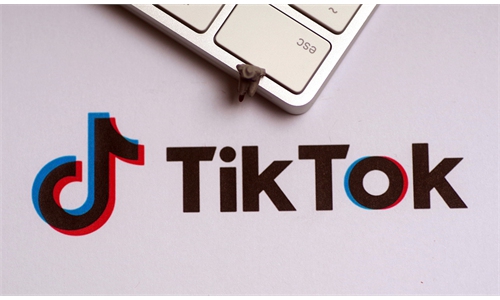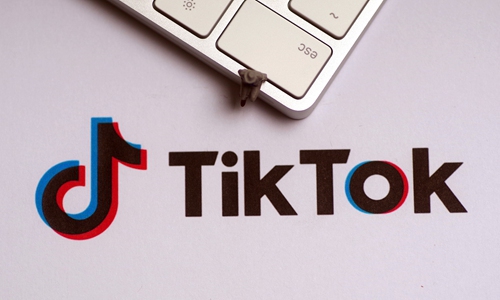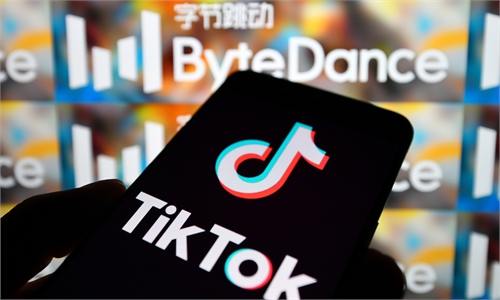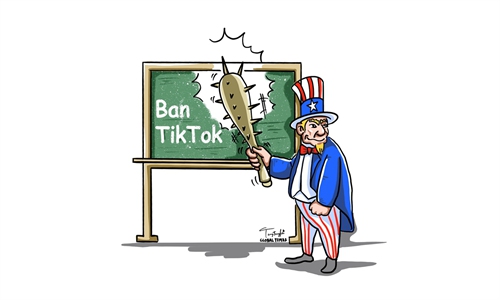US judge blocks Montana’s TikTok ban as Washington urged to stop crackdown and consolidate momentum of thawing bilateral ties
Washington urged to stop crackdown on Chinese firms and consolidate momentum of thawing bilateral ties
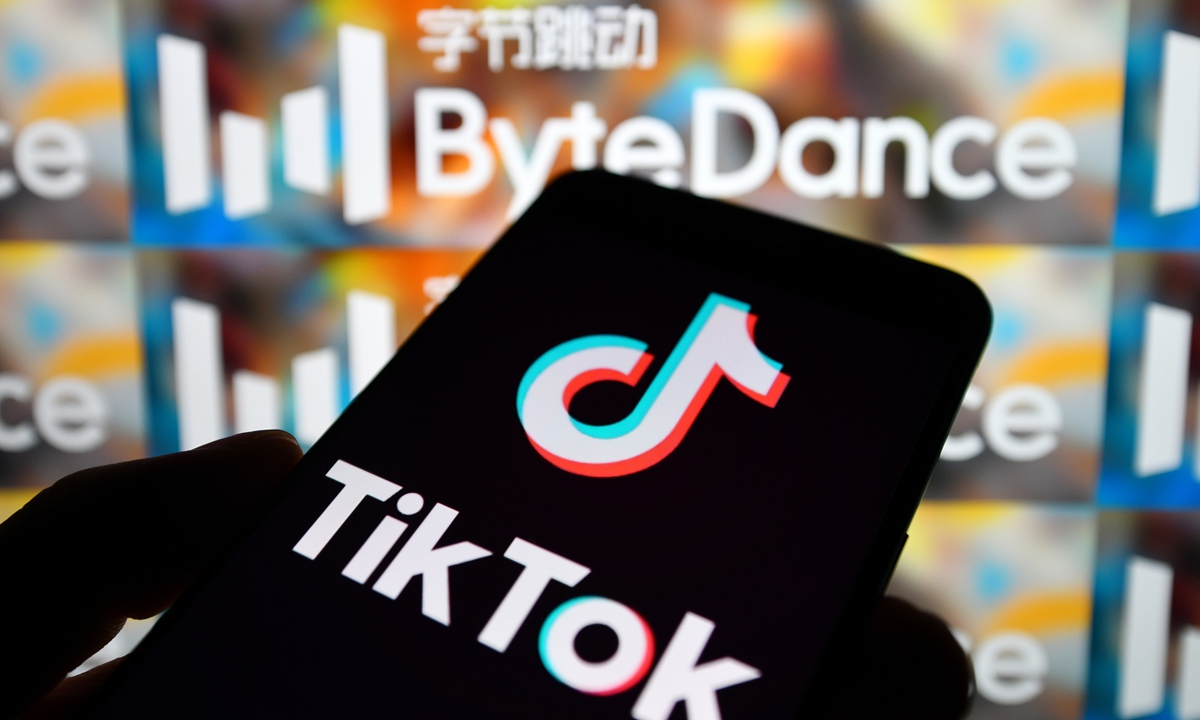
TikTok Photo: VCG
TikTok, the popular short-video app owned by Chinese technology company ByteDance, achieved a major victory in the US after a judge on Thursday (US time) blocked Montana's first-of-its kind state ban on the use of the app from taking effect on January 1.
Chinese observers said the positive move is expected to have a demonstrative effect on China-US relations, and called for the US to stop its unreasonable crackdown on Chinese companies so as to consolidate the momentum of thawing bilateral ties following the summit between the leaders of the two countries.
US District Judge Donald Molloy issued a preliminary injunction to block the ban on the Chinese-owned app, saying the state ban "violates the Constitution in more ways than one" and "oversteps state power," Reuters reported.
TikTok didn't immediately comment when reached by the Global Times on Friday. TikTok is headquartered in Los Angeles and Singapore, and has around 7,000 employees in the US, the company said during a hearing in March.
"The court's ruling shows that reasonable Americans have recognized that the US government's 'decoupling' and 'small yard, high fence' approach hurts the interests of American people and runs counter to the trend of international cooperation and mutual benefit," Bao Jianyun, director of the Center for International Political Economy Studies at Renmin University of China, told the Global Times on Friday.
Bao said the move will have a demonstrative effect, as more US states are expected to follow suit to block bans on TikTok and create a sound environment for trade and two-way investment.
The Chinese and US leaders' recent summit set the direction for the healthy, stable and sustainable development of bilateral relations, Li Yong, a senior research fellow at the China Association of International Trade, told the Global Times on Friday.
In addition to a series of high-level exchanges, business communities on both sides, especially US enterprises, have actively expressed expectations of strengthening the win-win cooperation to the next level, Li said. He said the US government should stop abusing the concept of "national security" and make concrete actions to promote China-US ties.
This year's China International Import Expo drew more than 200 US exhibitors, making it the largest US presence at the expo so far. Meanwhile, 20 percent of the China International Supply Chain Expo (CISCE)'s international exhibitors are US companies, such as Amazon, Apple, Intel, ExxonMobil and Tesla, who voted with their feet against "decoupling."
While the US government has tightened export controls of artificial intelligence chips to China, it has been unable to hinder profit-seeking US companies from stepping up their presence in the world's largest electronics consumer market.
"We try to do business with everybody we can. On the other hand, our national security matters. Our national competitiveness matters," Jensen Huang, CEO of US chipmaker Nvidia Corp, said at an event in New York on Thursday, Bloomberg reported. "We have to come up with new chips that comply with the regulation, and once we comply with the regulation, we'll go back to China," Huang said.
Currently, China-US ties still face many difficulties, and there is a long way to go before normal relations between these major countries are restored, Bao said, calling for the US to stop its unilateral, nationalist and protectionist practices, and meet China halfway in promoting win-win cooperation. "The US has to recognize that the vast Chinese market is more important for US enterprises," he said.
Underscoring China's commitment to opening-up, Chinese Foreign Ministry spokesperson Wang Wenbin reiterated on Friday, "Business communities from all countries are welcome to continue investment in China and share the opportunities brought about by China's high-quality development and high-level opening-up."
Just as CISCE kicked off in Beijing, showing a large country's responsibility in maintaining safe and smooth global supply chains, the White House released a raft of policies to strengthen the US' supply chains for so-called "national security" through closed and exclusive small circles.
In addition, it has been reported that 11 US House lawmakers on Thursday asked the Biden administration to investigate and potentially sanction Chinese drone maker Autel Robotics, citing "national security" concerns.
If the US continues to contain Chinese companies and China, it will seriously undermine the regained atmosphere of communication, Li said. "A healthy economic relationship requires healthy behavior from the US and constructive narratives need to be translated into actual actions," he said.
